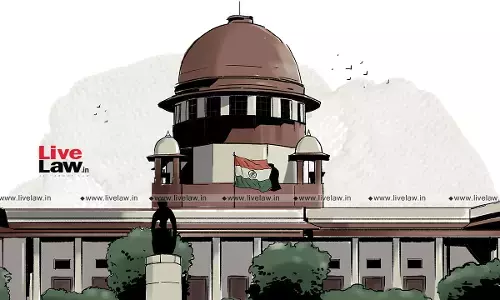Supreme Court Seeks Union's Stand On Pension Of Retired Air Force Women SSC Officers
Anmol Kaur Bawa
7 April 2024 12:32 PM IST

Next Story
7 April 2024 12:32 PM IST
The Supreme Court on Friday (April 5) asked the Union to clarify whether the one-time pensionary benefits granted to retired women airforce officers will be subject to revision or not. The women officers raised concerns about the correctness of the computation done for calculating their pensions, in light of the Apex Court's previous directions. In 2022 the Apex Court had in the exercise of...
